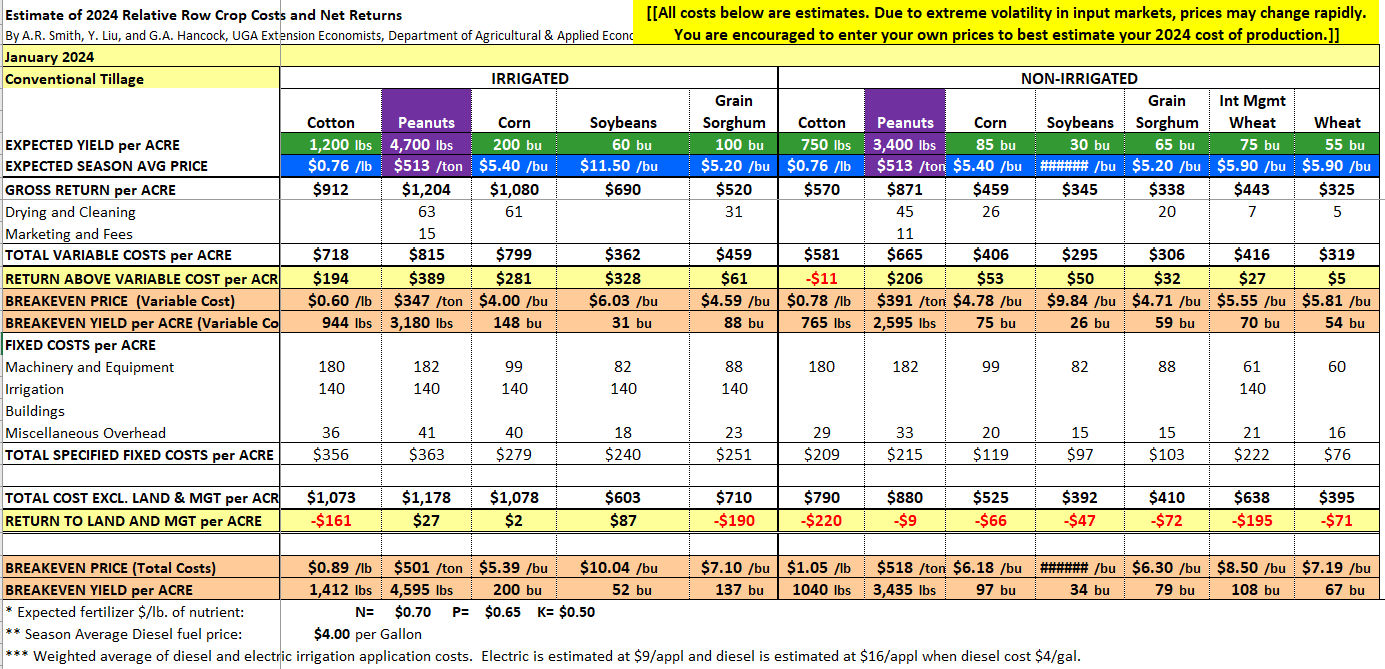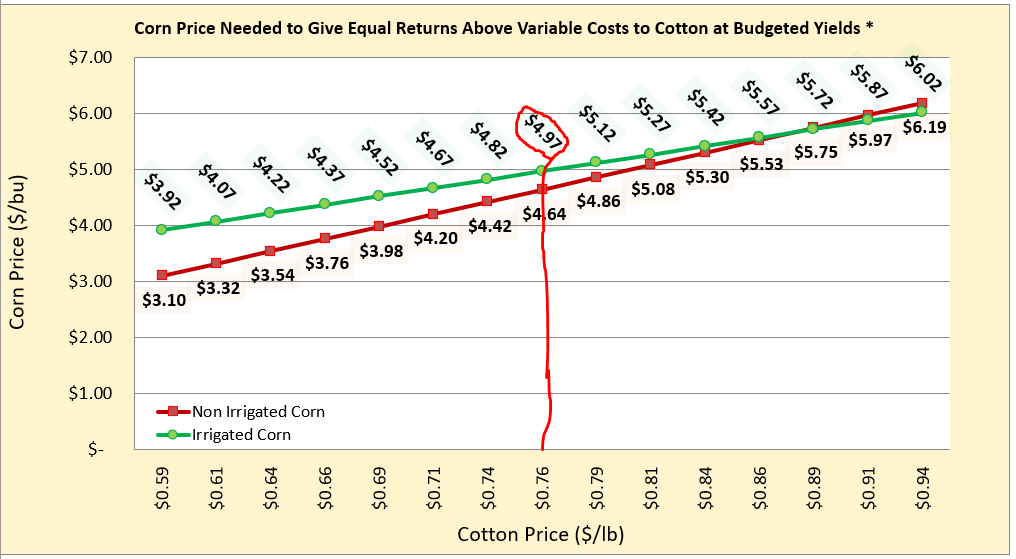Row crop farmers have an annual challenge of deciding which crops to grow in their rotation and how to utilize the land in their care this year. There is a great decision tool, provided by the University of Georgia, that is updated on an annual basis prior to the growing season. The 2024 Row Crop Comparison Tool is a spreadsheet that allows farmers to make comparisons between the commonly grown crops of peanuts, cotton, corn, or sorghum.
The spreadsheet is set up with average yields and crop values that can be modified to match individual farm production. For instance, the developers set 1,200 pounds per acre as the expected yield for irrigated cotton with an expected season average price of 76¢/lb. (as seen below). For this crop at this yield and market price the spreadsheet calculates the return above variable costs of $194 and the breakeven yield of 944 lbs./acre. If you change the expected yield to 1,300 lbs. and price ti 80 ¢/lb. the return above variable costs jumps up to $733/acre and the breakeven yield drops to 916 lbs./acre. The point is you can use the developers conservative estimates, or you can change them to fit what you realistically expect from your own operation. Either way you can compare the options for the different crops that fit in your rotation. They provide estimates for irrigated and non-irrigated (dryland) for both conventional and strip tillage production. The example below is for for conventional tillage.

–
The other key product this spreadsheet tool provides is a comparison charts to look at what if situations, such as, if 1,200 lb./acre irrigated cotton has an expected price of 76¢/lb., what would the price of corn have to be to match the same return over variable costs be with 200 bu./acre irrigated corn? The answer is in this scenario is $4.97/bu. 
–
Certainly this tool does not provide all of the information to make these tough decisions about what to plant in 2024, but it does help give some nice comparisons. Download this helpful tool and fiddle around with it. Most of the cells are protected, so you can’t mess it up, but you can change the prices and expected yields. Be aware the peanut price is calculated based on your contract specifications, so you will need to make changes in the second tab labeled, “Peanut Price Calculator” to change the peanut price per ton in the comparison pages.
–
Visit the University of Georgia’s crop budget webpage to download the Crop Comparison Tool or specific crop budgets (except cotton at the time pf publishing) to help you prepare for the coming crop year by using the following link:
UGA Crop Budgets and Decision Tools
 2
2
